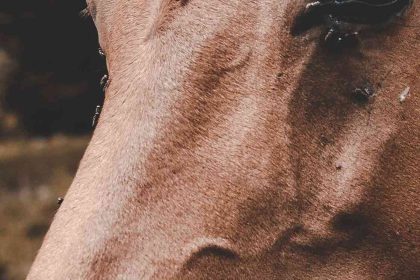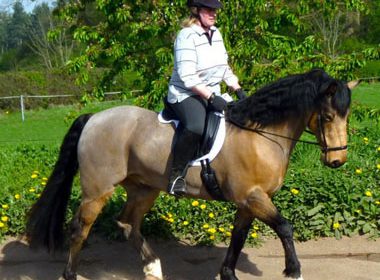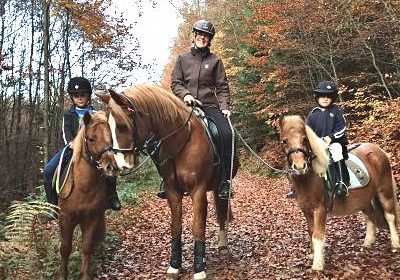Do you want to teach? There’s an alternative to the usual training and qualification route! The National Level 2 ‘Equestrian Coaching Certificate’.
These are offered by various organisations within the equestrian world although many people searching for qualifications are unaware of this fact. They are not widely advertised and not so well known – but they are genuinely, professionally recognised and accredited, equestrian coaching qualifications recognised internationally.
The overall qualification is overseen by 1st4sport and endorsed by UKCC/British Equestrian. A list of accredited coaches can be seen on the British Equestrian Federation website (BEF is now called British Equestrian).
Be Aware that as in any profession, to achieve a professional qualification to teach, you are required to demonstrate both practically and verbally that you are suitably experienced in your trade or profession. For a riding coach this includes equine management from genuinely basic level (e.g. including demonstrations on mucking out, grooming and riding skills). The horse is a partner in your career and his care & management is paramount and basic to your ability to coach riders and to your coaching skills. Lingfield cannot provide professional qualifications – we can however, offer preparation for the theory on which candidates are questioned during assessments for the qualifications. Where can you gain that theory knowledge ? Lingfield Level 1 Equine Care & Management course would provide the marjority of that all important theory on which you would be questioned during the days of your training and assessment. For those aiming for the Level 2 Equestrian Coaching Certificate we suggest the theory provided by the Lingfield Intermediate Diploma programme would be more appropriate. For those who are aiming for the ECC qualification we suggest you make sure you are up to speed on what the assessment days require. Lingfield therefore, also offers an online teaching preparation course suitable for those training for a Level 2 or Stage 2 teaching qualification in future. This includes information on how people learn, lesson plans and preparation ideas for various types of lessons and risk assessments etc.
The following information is firm at the time of writing but it would be best to undertake your own research too – websites change as does information on websites.
The Coaching Certificate (endorsed by UKCC) is an endorsement of a sport’s own externally awarded qualifications used to ensure the levels and standards of coaches across sports conform to common levels. The BEF is endorsed to deliver (in partnership with our member bodies) at Levels 1, 2, 3 and 4.
This Equestrian Coaching Certificate is a newer version of what used to be called the UKCC (UK Coaching Certificate). The changeover is underway – information statement will be found here.
The BHS used to offer this UKCC alongside their own Stages & Teaching qualifications which are overseen by Equestrian Qualifications Limited which is wholly owned by the BHS. The BHS therefore, have overall financial control over accreditation, qualification standard, fees etc. of their own Stages & coaching qualification system but not of the internationally recognised UKCC / Equestrian Coaching Certificate.
The BHS dropped this internationally recognised external coaching qualification option from their training system. Reasons unknown to the author of this post.
The Association of British Riding Schools however, do offer this generic ECC (old UKCC) which is a good option for those looking too qualify outside the BHS system or who are more mature and have some teaching experience already. The following links provide information Level 1 Coaching Certificate training days info from the ABRS
LATEST ABRS Level 2 information and training dates here
The various organisations which offer ‘Equestrian Coaching Certificates’, have each devised specialist coaching certificates relevant to their particular discipline.
Specific Coaching Certificate Providers
British Dressage
British Eventing
British Showjumping
UK Polocrosse
British Carriage Driving
Generic Coaching Certificate Providers
The Pony Club – go directly to the pcuk site for up to date information.
Association of British Riding Schools
Horse Scotland
To achieve a coaching qualification you need good all round equine management knowledge and skills and will be assessed on these during the training and assessment days with the ABRS.
The current ABRS website information is provided as follows:
“Most candidates have been engaged in a teaching role within a riding centre for a considerable period of time. Many of the candidates also hold Instructing and Teaching qualifications and wish to aid their personal professional development whilst keeping abreast of changing standards. Some candidates have also previously achieved UKCC Level 1. Though this is desirable it is not essential. In order to ensure you have sufficient technical/subject knowledge to successfully complete we also ask for a minimum of a Level 2 (or equivalent) in horse care and riding.”
Overseas students:
From the above statement from the ABRS we deduce that an overseas qualification equivalent to the Level 2 UKCC standard would be eligible for entry. See the International Group for Equine Qualifications.
For any coaching qualification in the UK, you will also need all the usual safeguarding, police/criminal record and disclosure checks and first aid & possibly the road safety courses under your belt. The Criminal Records Bureau (CRB) and the Independent Safeguarding Authority (ISA) have merged to become the Disclosure and Barring Service (DBS). CRB checks are now called DBS checks. First aid courses can be taken with Medi K – these are fully HSE approved
If you do not have sufficient provable teaching experience, you may need to look at taking Level 1 with the Pony Club as an alternative to the ABRS. Keep in mind that although there will be a fee for Level 1 training it is generally subsidised by the Pony Club itself for their branches. The Pony Club hope to train people who are keen to help at pony club events and who would be prepared to teach at rallies etc. Pony Club committees, helpers and most instructors are volunteers.
Both Level 1 and Level 2 Coaching Certificate training and qualification with the ABRS generally involves traveling to attend a 4/5 day course.
As with any genuinely professional qualification such as a solicitor or accountant or teacher, it demands quite high fees for training and for the actual qualification itself.
Although the training availability with the ABRS is quite limited, the more interest that is shown in training courses by prospective candidates, the more likely it is that more courses will be offered in future. It has to be worth their while and it is costly and time consuming to run those courses.
As is any profession, to achieve a professional qualification to teach, you are required to demonstrate both practically and verbally that you are suitably experienced in your trade or profession. For a riding coach this includes equine management from genuinely basic level (e.g. including mucking out, grooming and riding skills). The horse is a partner in your career and his care & management is paramount and basic to your ability to coach riders and to your coaching skills.
Review The British Equestrian website for details of Levels. Summary from the British Equestrian website: Equestrian Coaching Certificate
This pathway of qualifications is currently endorsed by the UK Coaching Certificate (UKCC) and is the route for most of our sport-specific Member Bodies. It’s part of a framework that has been adopted for coaching qualifications by a large number of sports outside of equestrian. Principles of the Equestrian Coaching Certificate Puts riders/drivers at the heart of what we do Provides a flexible qualification for all, in all coaching environments Provides technical coaching pathways for riding and driving, and equestrian sport-specific pathways including endurance, polocrosse, dressage, showjumping and eventing at different levels Aspiring coaches can be assured of a standardised qualification What’s expected at each Coaching Certificate Level? The role of the Level 1 coach is to: ‘Assist more qualified coaches by delivering aspects of coaching sessions, normally under direct supervision’ The role of the Level 2 coach is to: ‘Prepare for, deliver and review coaching sessions’ The role of the Level 3 coach is to: ‘Plan, implement, analyse and revise annual coaching programmes’ A Level 4 coach is a beacon high-performing coach for their participant group, i.e… Riders up to the age of 12 of all abilities Teenagers of all abilities Adult participation riders over the age of 18 of all abilities Adult competitive riders who are over the age of 18, with a focus on being competitive against others. These riders will train with the aim of competing successfully and moving up the levels. Performance development riders who are identified for the talent pathway programme and squads working towards senior high-performance High-performance riders who are selected to represent their country
NB. When we use the terms ‘riders’ or ‘riding’, it includes carriage-driving and vaulting activity.
All four levels of the Equestrian Coaching Certificate comprise of a number of days of taught content, followed by formal assessment.
Should you wish to develop your coaching from Level 3 the British Equestrian Federation offer the following programme https://www.britishshowjumping.co.uk/training/National-Development-Programme-for-Coaching-Excellence



Receive latest news and industry insights straight to your inbox.